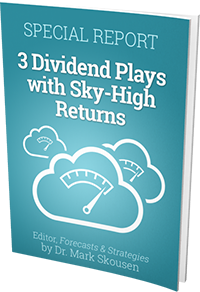REITs vs Stocks: Everything You Need to Know offers a comparison between two popular investments.
Real estate investment trusts (REITs) and stocks are a sensitive topic of debate as investors ponder which investment is better. Continue reading to learn the similarities and differences among REITs and stocks, as well as which investment offers better returns.
REITs vs Stocks: The Similarities
Both can be Bought and Sold on Major Exchanges
The most common type of REITs are equity REITs, which are publicly traded on major exchanges. Equity REITs and stocks can both be easily bought and sold on exchanges such as the NYSE or NASDAQ. Since REITs and stocks both trade on major exchanges , both are subject to market risk and fluctuations in price due to economic conditions.
Both Liquid
Since REITs and stocks can be traded on public exchanges, both are very liquid investments. It is simple for investors to free up money from stocks or equity REITs. Both investments can be bought and sold at any time with ease.
Publicly Traded REITs and Stocks are Both Registered with the SEC
Both publicly traded REITs and stocks are registered and regulated by the Securities and Exchange Commission (SEC). This means that the companies are required to file audited financial statements that can be accessed by the public. This is an advantage for potential investors because they can research a company’s financial performance before making an investment.
REITs vs Stocks: The Differences
REITs and Stocks are Distinct Asset Classes
Even though REITs are bought and sold like stocks, real estate is a different asset class than equities.
REITs and stocks do not have a strong correlation, and REIT performance is generally expected to deviate from the performance of major stock indices. Between 1994 and 2021, the correlation between REITs and stocks was 0.56. This is why REITs are great for providing diversification within investment portfolios and mainly hold stocks.
REITs Generally Pay Higher Dividends
REITs are required to pay 90% of taxable income to shareholders in the form of dividends. Therefore, many REITs have above-average yields. It is common for REITS to have safe dividends that are considerably higher than the average dividend yield associated with stocks.
REITs vs Stocks: Which Has Better Returns?
REITs may appear volatile and risky from a short-term perspective, but the long-term returns of REITs are impressive. When looking at time frames of five-to-10 years, it is common to see that stocks outperform REITs, even if it is by a relatively small margin. However, when taking 20 or more years into account, REITs routinely provide better returns than stocks. The longer REIT investments are held, the more likely it is that they will provide better returns relative to stocks.
The following chart outlines the comparison between stocks and REITs in terms of returns.
As shown, the S&P 500 has outperformed REITs in recent years due to substantial and unprecedented growth and outlier returns. These outliers have driven up S&P 500 returns shown below.
| TIME PERIOD | S&P 500 (Total Annual Return) | FTSE NAREIT ALL EQUITY REITS (Total Annual Return) |
| 1972-2021 | 12.58% | 13.52% |
| The Last 25 Years | 11.35% | 12.02% |
| The Last 20 Years | 11.09% | 13.10% |
| The Last 10 Years | 17.15% | 13.15% |
| The Last 5 Years | 19.21% | 13.89% |
| 2021 | 28.71% | 41.30% |
*1972 was the first year that NAREIT began keeping track of REIT return data
Data Source: NAREIT and Slickcharts
Evidently, REITs provide the best returns when they are held onto as a long-term investment. This is important for potential investors to keep in mind.
However, it is important to note that the above comparison takes into account a broad range of stocks and a broad range of REITs. Individual investors may obtain different results depending on which specific stocks and REITs they hold.
Based on historical data, it can be said that it is likely that REITs will outperform stocks over long periods of time, especially lengths of time that exceed 20 years. Before the 20-year mark, stocks may perform better, although both investments could provide relatively similar returns. Additionally, it is possible REITs can outperform the S&P 500 significantly, as shown in the outlier year of 2021, due to a wide range of factors.
REITs vs Stocks: The Bottom Line
The reality is that an investor who is looking to create a diversified portfolio should invest in both REITs and stocks. REITs and stocks are both unique investments that offer distinct benefits, and an investor will see the most success when he or she finds a smart balance between investments.
Adam Johnson is an editorial intern who writes for www.stockinvestor.com and www.dividendinvestor.com.




